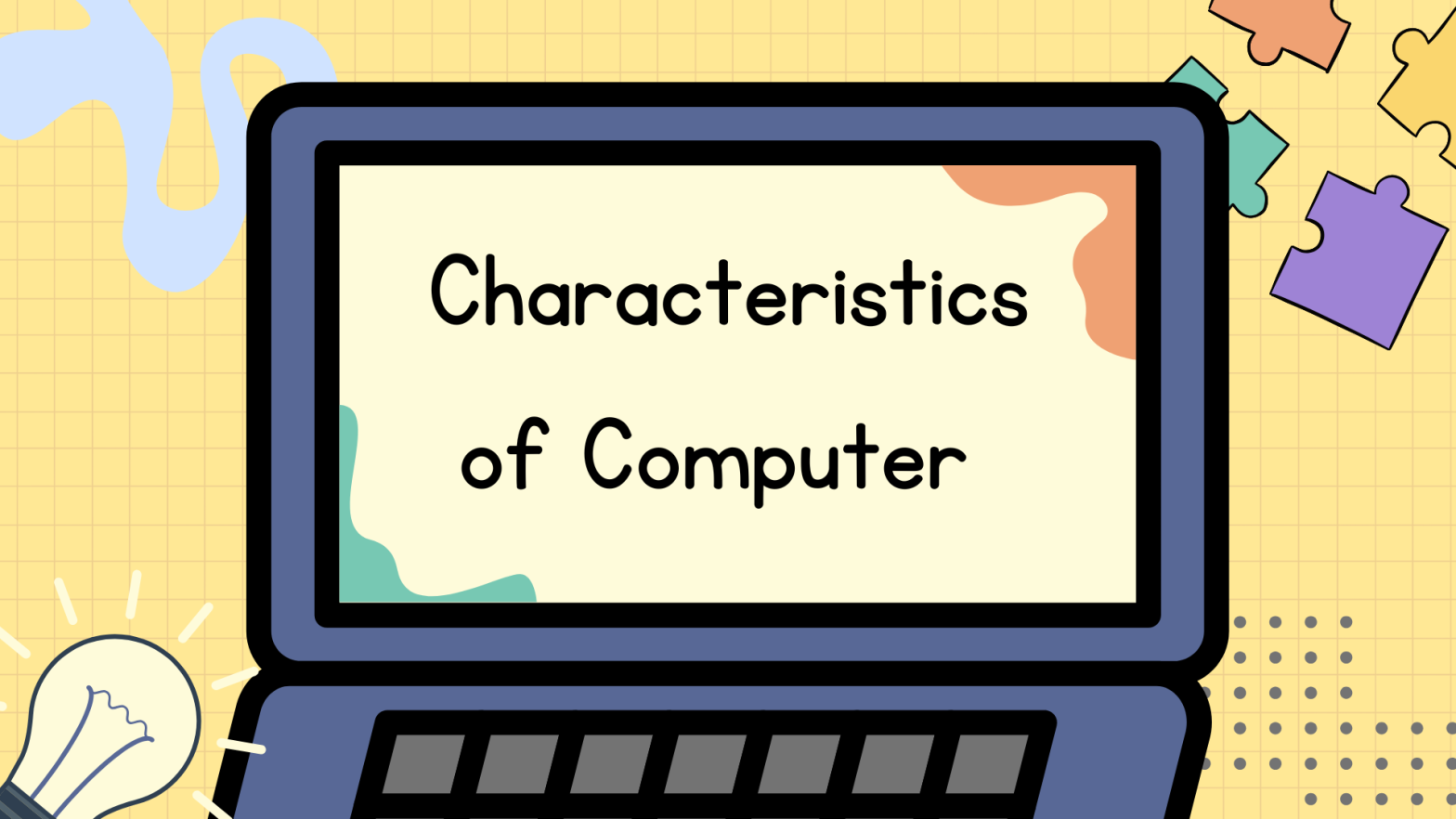
Modern lives can't sustain without digital devices like computers, laptops and mobile phone. Their ability to process information rapidly, store vast amounts of data, and perform complex tasks within minutes makes them exclusive for respective usages. Defining characteristics of computer, such as speed, accuracy, reliability, consistency, versatility, etc., enable them to handle a wide range of tasks ranging from scientific research to business management.
Understanding these characteristics provides insight into why computers play such a crucial role in today's world and how they continue to shape the way we work, learn, communicate, and solve problems.
From simplifying everyday tasks to handling complex operations, computers have revolutionized our lives.
Here are 10 characteristics of computer that make them exceptional:
Computers far surpass humans in terms of speed. They complete in seconds what would take us minutes. Now with AI, things have become way more rapid and their use cases are being delivered through the same devices - computers!
They are capable of processing thousands of instructions, performing billions of operations, and producing results within microseconds.
The speed of a computer is measured in Hertz (Hz), Megahertz (MHz), and Gigahertz (GHz). With continuous advancements in technology, computers are becoming even faster, enabling them to handle increasingly complex tasks with remarkable efficiency.
Computers perform every operation with accuracy. From complex calculations to data compression, copying, or transferring files, they handle multiple tasks simultaneously without making mistakes.
If errors appear in the output, they always trace back to human input—whether it's incorrect data, faulty instructions, or programming mistakes. Simply put, wrong input leads to wrong results.
Computers can work carefully, steadily, and consistently at the same speed and accuracy for hours on end. They neither require breaks nor get distracted. They keep on performing the tasks with similar energy and attention.
You can rely on computers for many operations, from monetary transactions to doing repetitive jobs, saving your files, photos, and music, transferring, sorting, and searching data, doing complicated calculations, and whatnot. Computers can perform all these operations without any error or delays.
Moreover, being a machine, computers don't have emotional issues that make them bored, tired, or angry. You can easily get things done with such devices as long as they are functioning at their best ability.
Computers store a large amount of data safely and securely. They use both primary memory or main memory (RAM, ROM, CPU, and Cache) and secondary memory (Hard Disk Drive (HDD), Solid State Drive (SSD), CDs, DVDs, USB Flash Drives, and external storage) to save and manage data.
The data is stored temporarily in the primary memory. Secondary memory offers long-term storage of a large amount of data. The storage of computers is measured in bytes, kilobytes (KB), megabytes (MB), gigabytes (GB), and terabytes (TB).
One of the best characteristics of computers is that they have excellent remembrance power or memory. They can not only store, but also recall any information or data saved in their memory. This characteristic of computers makes them the best device to store and retrieve information.
Computers do not change, forget, or delete information on their own. So, if you saved a picture or file on your computer 10 years ago, you can still retrieve it unless you have deleted it yourself mistakenly or purposely.
Computers don't just respond to commands; they are capable of performing several logical operations within seconds. They can solve logical problems. They can also think and learn. AI is a prime example of a computer's rational capabilities.
You can trust computers with different types of tasks. They are very versatile and they can perform multiple tasks at the same time and deliver accurate outcomes.
These devices can adjust their speed and performance according to the task at hand and instantly switch to a different software or program to handle other tasks. They can manage a large amount of heterogeneous data.
Computers do not need continuous human intervention to perform. Automation allows computers to follow programmed instructions or scripts.
All you need to do is give them instructions or commands, decide when the operation should run, and watch them perform all the tasks by themselves. You can monitor the operations if you want.
However, if the automation encounters an application or programming error, it may cease to function. In such cases, you may need to fix or restart the program or script.
Computers work without variations. They give consistent results for every task. They do not let any external factor change their output. So, if you command your computer to perform a task a hundred times, you will get the same result every time. However, if you change the program or input data, you might get a different output.
With education systems changing every day, we're headed towards time when assistance of computing devices will become essential for learning. From online classes to project creation, students need computers across standards and subjects. It is also the reason why Computer Science is a subject every students starts learning from early standards.
Characteristics of computer reflect how this device helps us carry out tasks that would take hours to do manually. We now have it faster, better, and with more accuracy. Learning computers helps students become technologically sound and create innovating opportunities to accomplish tasks that seemed impossible otherwise.